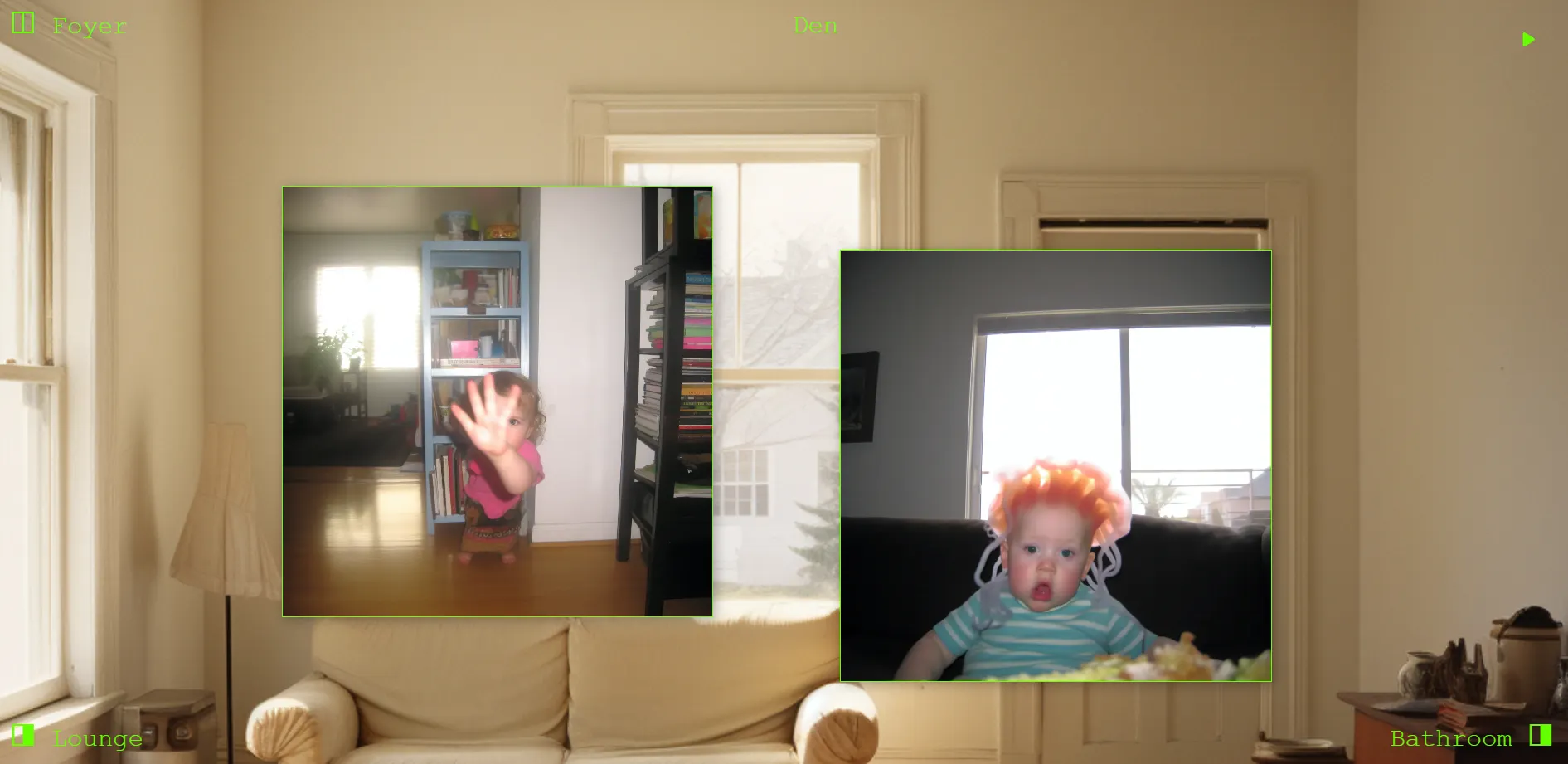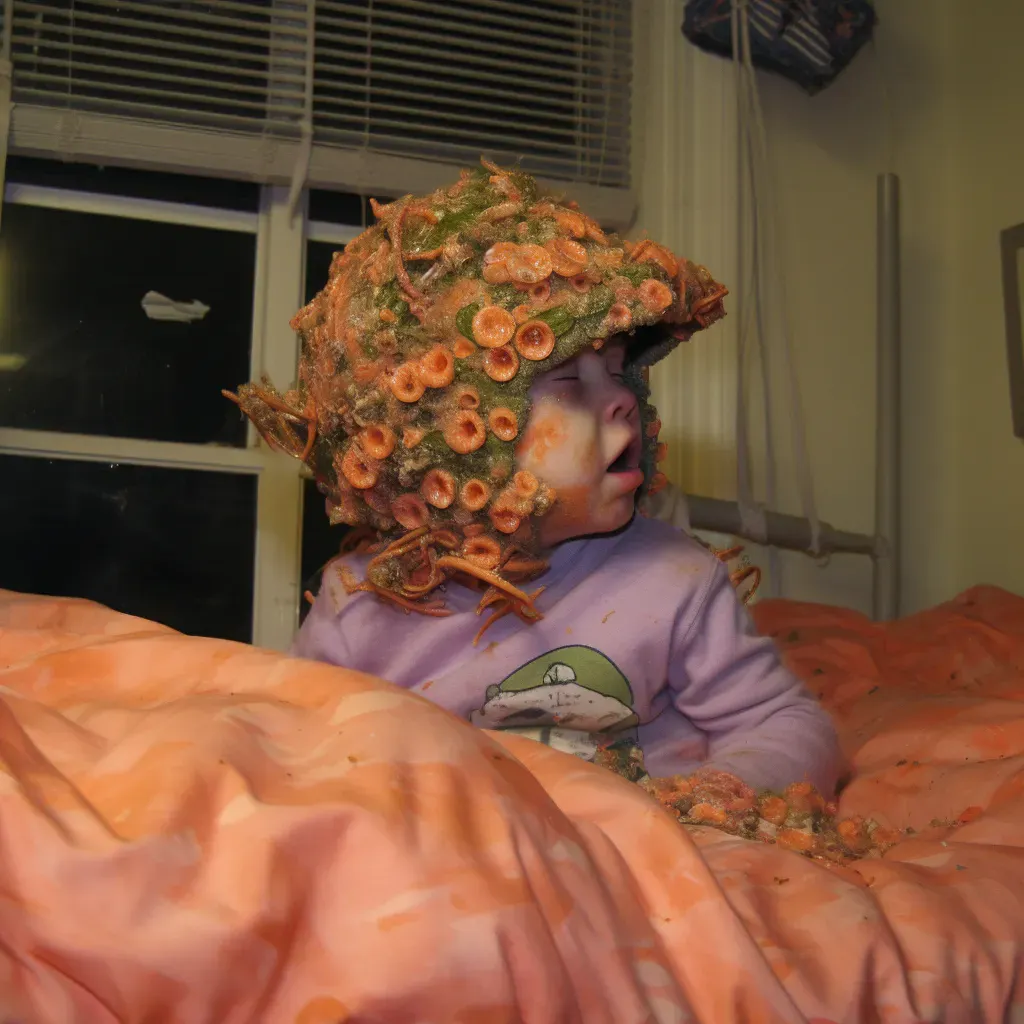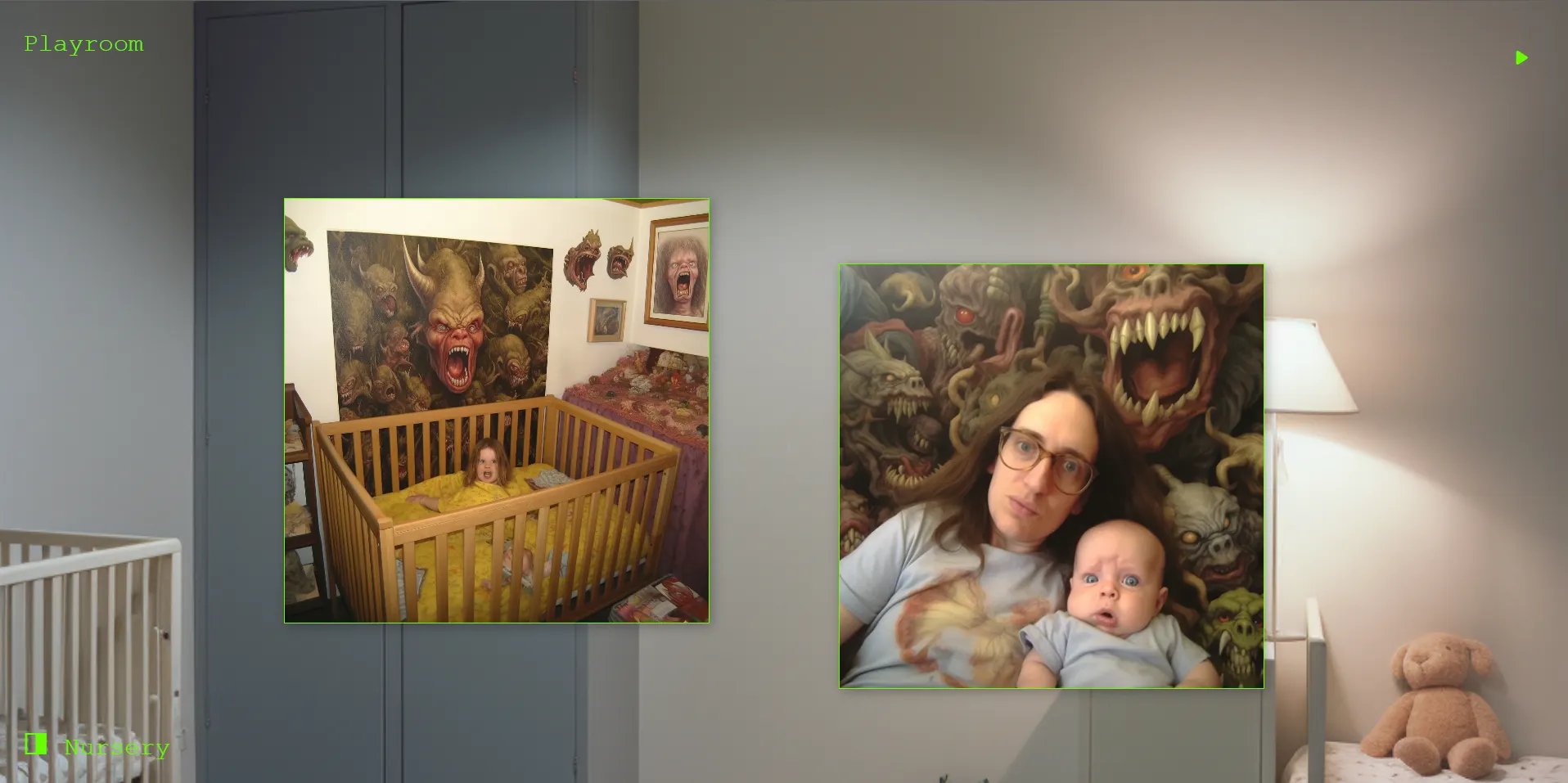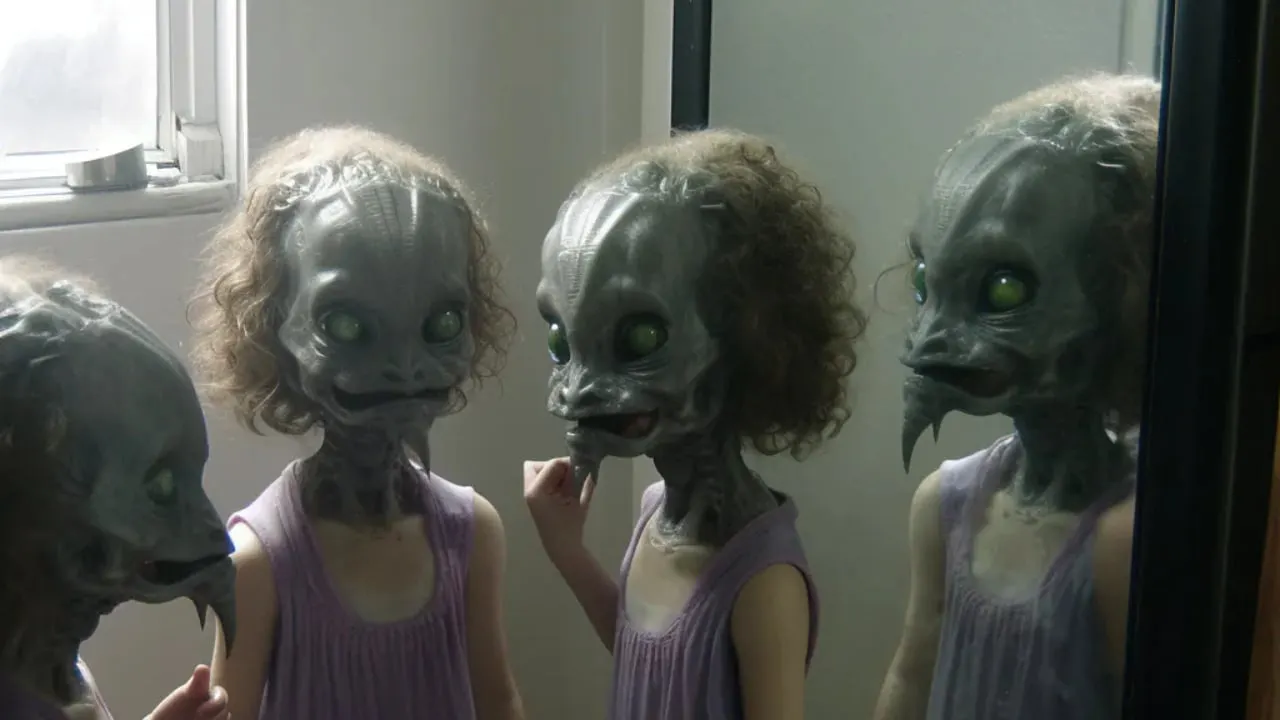What looks like a normal southern California home is nothing but in artist Ann Hirsch’s newest digital exhibit, "Sacra Famiglia."
Clicking through the opening credits and entering the home’s foyer, guests are greeted by images of rather standard suburban living. A picture of a young girl sitting with her father and two children; one sitting in a yellow bucket, the other sprawled out in a purple dress.
But skip past the foyer and into the den, and the images take an odd turn.
In one home photo, a young girl appears to have just three fingers and a thumb. The adjacent image shows a toddler’s head that looks more like a jellyfish.

Throughout the tour is accompanying audio from Hirsch, an ASMR-styled narration of phrases one might overhear in a home: “I’m making dinner tonight;” “We don’t use that kind of language in this house;” or “daddy, daddy, daaadddyyy. What are you doing on your phone?”
All the images are AI-generated using some of Hirsch’s own family photos and Midjourney.
It’s a trend found throughout her work as a net artist, merging rich personal experience with the technology of the moment. In 2008, for example, she turned to the arrival of YouTube to examine her life. What resulted was a series of dances, confessions, and everything in between for her project "Scandalishious."
SACRA FAMiGLiAhttps://t.co/mlwUCVEDsS
A series of 40 family generated Ai images, embedded in a Web 1.0-esque treasure hunt adventure. Room upon room of family fun and horror! 😈😱👻 pic.twitter.com/9UFIsLahOY— ann hirsch (@nnHirsch) September 25, 2023
Like YouTube of the noughties, Hirsch is now applying the same principles to the artificial intelligence of now.
“I had already been taking these snapshots of my family life, of my domestic life, on an old digital camera,” Hirsch told Decrypt. “So, I already had a bunch of those images, and I was like, ‘Huh, I’m curious what happens if I put this into Midjourney.’”
And like the images featured above, the weirdness is very subtle, much like the small quirks that AI has been known to generate.
Not all of the images are as restrained, however. In the boudoir of the same house, the guest is greeted by a toddler wearing a wet spaghetti-mushroom helmet of sorts.
“I was really fascinated by the way that AI was interpreting my photos,” she said. “I’ll put in a picture of my daughter and the word ‘alien,’ and it just comes out with this crazy, dark thing.”

In the house’s playroom, the walls of the room are adorned by howling beasts, below which another child is sprawled out in her crib.
These more extreme images are interspersed between relatively normal—at least in the context of Sacra Famiglia—family photos of the nuclear American family.
It’s this juxtaposition between the surreal and mundane that gives the wider project its truly unsettling quality.

She said that she imbued more than 100 different images, but wanted to reduce it to just 40 “that really all worked together.”
These 40 images are also to be minted as NFTs on Friday, selling for 0.1 ETH (about $165). The NFT world “is really a separate audience in many ways than the traditional art world,” she said.
“I made a YouTube channel, I went on reality TV. I’m interested in audiences that aren’t the typical art audience. I feel like they get me more,” Hirsch told Decrypt. “The people in the traditional art world can be very serious. And a lot of my work is not very serious.”
And instead of just dumping a collection out, she felt the digital tour of the home provided a much-needed framework for placing each of the images.
“I thought the website being a house would just be a really cool, immersive way for people to get into the images instead of just clicking and scrolling as one might typically do,” she said. “I wanted to create something that was more like an experience, basically.”

